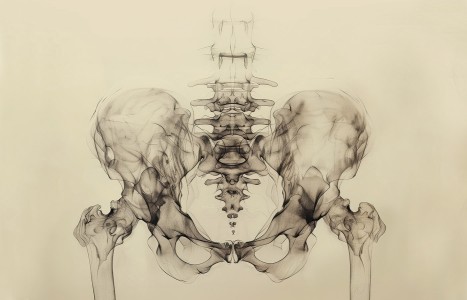People today want convenience, whether it be from their bank, credit card, favorite retail store, or restaurant. They demand it from the companies who hold their loyalty, including their health care providers (you). They don’t want to call and possibly be put on hold, and they want to use an app or schedule an appointment on your website. Here are three reasons your practice can gain by switching to online appointment scheduling.
A Few Good Eggs: TCM for Fertility and Reproductive Health
- Traditional Chinese medicine has been used for centuries to support fertility by improving egg quality, balancing hormones and enhancing overall vitality.
- In TCM, fertility is closely tied to the body’s jing (life essence). While some people are born with more substantial reserves, lifestyle and nutrition play a significant role in preserving and enhancing reproductive health.
- By nurturing fertility through TCM, patients aren’t not just improving their chances of conception; they’re also investing in long-term health and well-being.
In my regular clinical encounters in the area of reproductive medicine, I frequently see fertility challenges linked to the declining quality and quantity of eggs. This issue can stem from various factors, each playing a significant role in reproductive health.
Fertility is often thought of only in the context of trying to conceive, but in reality, it’s a vital sign of overall health and well-being. Reproductive health reflects how well the body functions, and declining fertility can be an early indicator of hormonal imbalances, aging and other underlying health concerns.
Traditional Chinese medicine has been used for centuries to support fertility by improving egg quality, balancing hormones and enhancing overall vitality. Whether a patient is actively trying to conceive or simply looking to support long-term reproductive health, understanding these natural approaches can help them maintain wellness at any stage of life.
Why Fertility Declines
Women are born with a set number of eggs, and this supply naturally decreases over the years. Here’s what happens:
- Before birth: A female fetus has around 7 million eggs by the fifth month of pregnancy.
- At birth: This number drops to about one to two million.
- By puberty: Only around 300,000 eggs remain.
- By age 35: Fertility begins to decline more rapidly, and the chances of conception drop to about 15% per month compared to 30% in a woman’s 20s.
While this is a natural process, certain lifestyle and environmental factors can increase egg loss and impact reproductive health.
Common Factors That Affect Fertility
Age: As women age, the number and quality of eggs decline. While this is expected, studies show that TCM treatments, such as diet, lifestyle and herbal therapy, can slow this process and improve egg health.
Genetic Conditions: Some women have lower ovarian reserves due to genetic factors. Conditions like Turner syndrome or Fragile X syndrome can affect fertility, while gene mutations may lead to premature ovarian aging.
Endometriosis: This inflammatory condition can negatively impact ovarian health, egg quality and hormone balance. Research has shown that women with endometriosis tend to have lower ovarian reserves.
Polycystic Ovarian Syndrome: PCOS is a hormonal imbalance that can cause irregular cycles and affect egg maturation. While women with PCOS often have many follicles, research suggests that their ovarian reserve declines more rapidly than previously believed.
Environmental Toxins: Everyday chemicals – found in plastics, pesticides and even beauty products – can disrupt hormones and reduce fertility. BPA, flame retardants and perfluoroalkyl substances have all been linked to lower egg quality.
Lifestyle Choices:
- Smoking damages egg health and accelerates ovarian aging.
- Excessive alcohol disrupts hormone balance and reduces fertility.
- Obesity increases the risk of hormone imbalances, lower egg quality, and miscarriage.
- Chronic stress can interfere with reproductive hormones and lower ovarian reserves.
Surgeries and Medical Treatments: Procedures that involve the ovaries, such as cyst removal or endometriosis surgery, can reduce ovarian reserves. Additionally, chemotherapy and radiation significantly impact egg health.
How TCM Supports Fertility Naturally
In TCM, fertility is closely tied to the body’s jing (life essence). While some people are born with more substantial reserves, lifestyle and nutrition play a significant role in preserving and enhancing reproductive health. Here are some key ways to support fertility with TCM:
Prioritize Deep, Restful Sleep: The body repairs itself during sleep, including the reproductive system. Patients should aim for seven to eight hours of quality sleep each night to support hormone balance and ovarian function. Recommend a sleep formula with jujube seed, which has been found to increase and enhance restorative and deep sleep.
Nourish the Body With the Right Foods:
- Protein-rich foods (eggs, beans, dairy) support egg quality.
- Bone broth and marrow soups help replenish jing and support fertility.
- Antioxidant-rich foods (berries, leafy greens) protect eggs from damage.
Reduce Stress and Support Hormonal Balance: High stress can interfere with reproductive hormones and reduce ovarian function. Meditation, qi gong, acupuncture, and herbal medicine can help reduce stress, regulate the nervous system and improve fertility outcomes.
Maintain a Healthy Circadian Rhythm: Frequent travel across time zones or poor sleep habits can disrupt hormones. Going to bed at the same time each night and limiting screen exposure before bed can help maintain reproductive health. Reduce the impact of time change with adaptogens like ginseng.
Exercise Regularly (But Not Excessively): Moderate exercise improves circulation, metabolism and egg quality. However, too much high-intensity exercise can deplete energy reserves and disrupt hormones. Gentle, but strengthening exercises like tai chi and yoga are beneficial.
Use Targeted Supplements:
- Vitamin B12 and folate support cell growth and fertility.
- Omega-3 fatty acids (fish oil) reduce inflammation and improve egg health.
- Concentrated royal jelly has been shown to support ovarian function.
Acupuncture and Herbal Therapy:
Acupuncture has been shown to:
- Increase blood flow to the ovaries and uterus
- Balance reproductive hormones
- Reduce stress-related fertility issues
Herbal medicine is customized for each individual to support hormone balance, ovarian function and overall reproductive health.
Why Fertility Health Matters – Even for Patients Not Trying to Conceive
Fertility is a reflection of overall health. Even if pregnancy isn’t a patient’s goal, taking care of their reproductive system can support hormonal balance (reducing PMS, irregular cycles and menopause symptoms); slow down aging and preserve vitality; improve energy levels, mood and mental clarity; and reduce the risk of osteoporosis, heart disease and other aging-related conditions.
By nurturing fertility through TCM, patients aren’t not just improving their chances of conception; they’re also investing in long-term health and well-being.
Editor’s Note: This is the first installment in a new multi-author column focused on fertility / reproductive health. If you’d like to be considered for inclusion in the column, send your article to editorial@acupuncturetoday.com for review.



